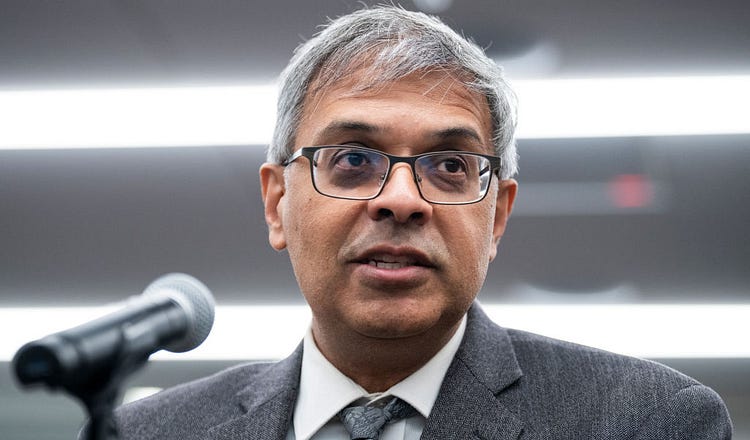
Before March of 2020, Jay Bhattacharya was a widely respected professor of medicine at Stanford University who had published more than 135 peer-reviewed papers. Then came the coronavirus. And everything changed.
That’s because Dr. Bhattacharya, along with Martin Kulldorff of Harvard University and Oxford University’s Sunetra Gupta, held the following view about how to fight the pandemic: Protect the most vulnerable (the elderly and those with comorbidities) by, among other practices, conducting frequent testing of nursing home staff and visitors that would keep Covid cases to a minimum. For everyone else, especially the young, they advised eliminating restrictions that were silly (shutting down sporting events), deeply harmful (closing schools), or economically disastrous (lockdowns). They called it “focused protection.”
In October 2020, Dr. Bhattacharya and his colleagues published those views in a statement known as the Great Barrington Declaration, named after the Massachusetts town where they had written it.
What followed can only be described as a full-on assault on Bhattacharya’s character.

